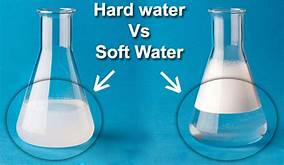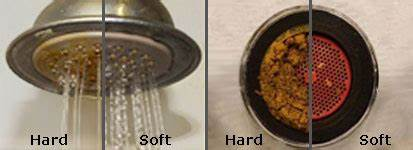You’ve probably heard of the difference between hard and soft water, but what exactly is the difference between the two? Hard water is the result of mineral deposits in the water. Soft water has no mineral deposits and is free of these. Rainwater is soft, while water that is treated at a water treatment plant becomes hard. The minerals in water affect how well they clean and the way they lather. Hard water is also tougher on clothes, hair and skin.
Hard water is classified according to the mineral concentration it contains. Its mineral content is measured in milligrams or grains per gallon. In general, the amount of dissolved minerals in water depends on the temperatures and the pH levels of the area. In areas with higher mineral concentration, hard water is found. The difference between hard and soft water is important because they affect different appliances, which are made to work in a certain way.

Whether you live in a city with high amounts of minerals in water is an important question. Hard water tends to have a higher mineral content, which can make it less tasty. In addition, softer water will probably not taste the same way you are used to. Fortunately, you can get water softened by using reverse osmosis, distillation, and deionization.
Calcium and magnesium are the main causes of hardness in water. These minerals form calcium and magnesium sulfates in the water. Adding an ion exchange resin to your water will soften it. The resulting water will also taste saltier. However, this process is temporary and can be remedied without harming your health. It may also be beneficial to use water softening devices.
Despite its name, water hardness affects your home’s pipes and appliances. When the mineral buildup becomes severe, your pipes and appliances will require more frequent cleaning. If you need advice on CCTV Drainage Surveys to detect a blockage, go to www.wilkinson-env.co.uk/drainage-services-cctv-surveys-midlands/cctv-drain-surveys/cctv-drain-surveys-gloucester

Moreover, water hardness affects water heaters negatively. According to a recent study, a tankless water heater that was run with hard water only lasted an average of a year and a half. If you’re worried about your water quality, softening is definitely the way to go.
Hard water contains more minerals than soft water. Soft water is treated to remove minerals from the water, whereas hard water contains a lot of dissolved minerals. The extra minerals in hard water cause buildup and stains on taps and appliances in the form of limescale. In addition, hard water is more abrasive to the skin.